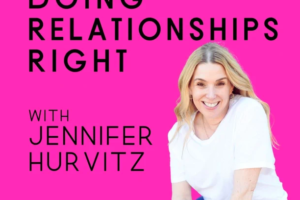Many of us are taught from an early age that there are three subjects you don’t discuss in public: politics, religion, and money. Of course, behind closed doors, families very often talk about politics and their religious beliefs, but I’ve found that most families simply do not discuss financial matters – even with their children.
Studies show that our money patterns are often established by age 7, largely based upon the models we see at home. For families that do not allow space for dialogue around finances, or have more limited means and experience shame around their financial status or perhaps poor decisions that were made along the way, the children tend to absorb those feelings and experiences, and develop a lack of confidence around money as a result.
As these children grow into young adults who navigate financial waters of their own (and inevitably make some mistakes along the way), their feelings of embarrassment and shame increase and are often compounded by secrecy and denial. This is where the repression of money dialogue starts – in childhood and young adulthood – formative times in which people tend to hide their financial realities, often taking this mentality far into adulthood wherein many people feel they can’t even talk about money with their closest friends.
But if we’re able to talk about sex, dating, body image, religion, and politics with our friends, why are we still so uncomfortable talking about money? We all think about it, worry about it, interact with it, and make choices about money every day. Money is fluid: many of us have times in which money is abundant and times when it is sparse; but for better or for worse, financial circumstances ebb and flow.
I’m a firm believer in the benefits of having an open and honest money dialogue among close friends so people don’t feel so alone in their financial lives, and can even help each other grow and learn from one another’s mistakes because we all make them. By being more forgiving and kinder to ourselves and others around money, we realize we’re not alone and feel more empowered to take steps toward cultivating a more positive relationship with money, overall.
Some of us have that one friend who somehow has a better working knowledge of finance, so why not pick their brain? And if you happen to be the friend with more financial knowledge, why not share it? As we all try to live a more authentic life, this includes having more authentic friendships exempt from judgment. Surrounding ourselves with people who lift us up when we are down, share their wisdom, are honest about their mistakes, and give us tips that could help our future – isn’t that what friendship is all about?
We need friends to fill in where we lack information and skills. I am the first to admit I am extremely limited when it comes to interior design. I just don’t have a good sense of what goes together, the scale of items, and how to finish the look. I always ask a good friend to offer an opinion if they have more knowledge in this area or other realms in which I lack experience. I am very open about my limits, lack of training in this area, and insecurities about my decisions.
My hope is that people begin to feel less scared about sharing their limitations around money and seek out help from those they trust – ultimately creating a reciprocal sharing of information that is supportive and mutually beneficial.
Now – we don’t need to pry into someone’s bank balance, but by asking general questions, we can gain a better understanding of what we might need to pay more attention to with respect to our own money. A true friend will not only know when they have useful information and know when to share it, but they can also usually identify when it’s time to seek out professional financial advice – it’s very likely they’ve done the same at some point!
There is also beauty in learning together, as friends. For example, let’s say I expressed to a friend that I knew nothing about the stock market and investing. My friend might say, “Neither do I. Why don’t we take a class and learn together?” Joining forces with a friend to become more financially literate is so powerful.
No one’s money story is perfect. We all know this to be true, yet we feel horrible when we hit what I call a “tough chapter” in our story. There is never a more important time to rely on those we hold close for support. We’re not talking about lending money or co-signing leases; it’s about how we teach people to fish rather than simply giving them a fish. It’s the education and support component that is so essential.
Everyone knows the saying, “It takes a village to raise a child,” but it also takes a village to help us reach our full potential as adults – and relying on our friends can help us to increase our financial competency for the long haul.




